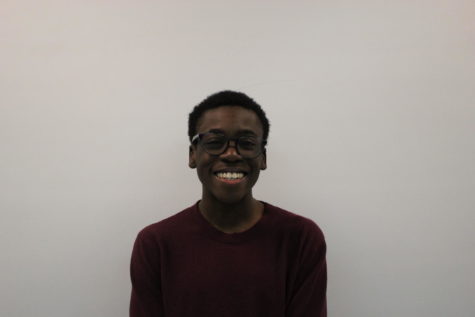George Floyd leaves a lasting impact; one RM students personal reflection
June 1, 2021
For most, nine minutes is a short amount of time. It’s just enough time to boil an egg, take a short walk, or complete a few quick household chores. Yet, much more can happen in those nine little minutes. For George Floyd, they were the last minutes of life. Eight minutes, and forty-six seconds. That is how long former officer Derek Chauvin was kneeling on Floyd’s neck.
Last May at the time of Floyd’s death, people instantly took to social media and continuously reposted the video of Floyd’s murder. The video spread wildly, being shared all over the world.
In June of 2020, protests occurred around the United States in the wake of Floyd’s murder. Even here at Richard Montgomery, seniors Lauren Payne, Nora Elsayed, and Alexis Crawley came together to create a protest which many RM students and staff members attended.
I was extremely proud and happy to see the amount of support from the Rockville and RM communities to fight for justice and to mourn George Floyd. As we marched together down Rockville Pike, there was a sense of solidarity that arose in me. It was one of the first major protests I was a part of, and I’m glad I was able to experience it.
During the demonstrations, a call for police reform was heavily emphasized by protesters. This is because there are still a bountiful number of unarmed African-Americans who have unjustly lost their lives to the police.
The first case I can remember this happening was in 2012. The specific instance was the death of Trayvon Martin, an unarmed black teen who was fatally shot by George Zimmerman, a neighborhood watch volunteer. Zimmerman was eventually acquitted at his trial, claiming he acted in self-defense.
Martin’s death sparked the creation of the widely known organization, Black Lives Matter. In just a few years, Black Lives Matter went from a small group to a known household topic. Nowadays, the movement is discussed and supported across the globe.
During the time of widespread protests, all four officers involved with the incident were charged with both aiding and abetting manslaughter, and murder. With the Minneapolis police department changing their policies on the use of force a day later on June 5. Also included in the changes was a banning on chokeholds.
About a month after George Floyd’s burial, his family sued Minneapolis and the four officers at the scene of the murder. On July 21, Minnesota’s legislation passed multiple accountability measures which most notably restricts neck restraints from being used.
After Chauvin posted a million-dollar bail in early October, protests began to arise again throughout Minneapolis. At the beginning of this year, the judge for the trials, Peter Cahill, ruled that Chauvin would be tried alone first. While the other three officers would be tried during the summer.
About three weeks before the trial began on March 29, Minneapolis agreed to pay the Floyd family 27 million dollars in settlement. The trial’s closing arguments were scheduled for April 19, with Derek Chauvin officially being sentenced on April 20.
The amount of attention the case drew made it feel different than others in the past. I think because of people having to stay inside because of COVID-19, Floyd’s death was more publicized and talked about. Since the murder took place while everyone was still told to stay inside, I feel it was one of the few things people could focus on.
Although Derek Chauvin’s sentencing was a relief, I still feel as if this is only the beginning. People must continue to fight to undo the injustices that not only Black Americans, but many minorities face today. Chauvin going to prison is not justice for George Floyd who deserves to still be alive today, but only accountability.


